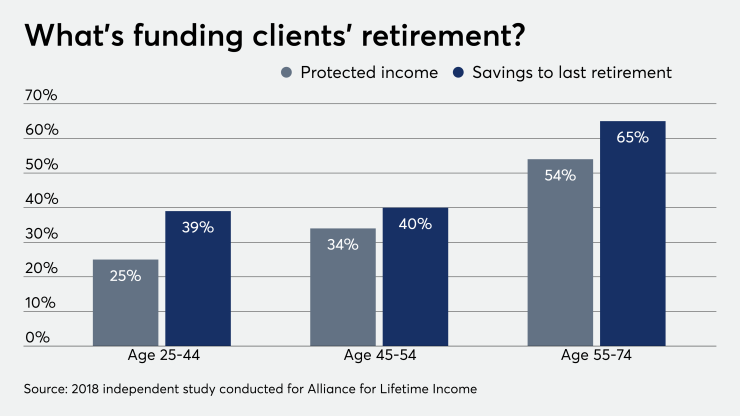Welcome to Retirement Scan, our daily roundup of retirement news your clients may be talking about.
Widening income equality is putting older adults at financial risk, according to research cited by this article in CNBC. Two reports show the widening wealth gap could be attributed to the differences in the median value of retirement accounts and home equity between higher and lower-income households. A study by the National Institute on Retirement Security has found that American workers would face better retirement prospects if the federal government adopts public policy changes — such as raising Social Security revenues to shore up the benefits of lower earning workers.
The number of retirees returning to the labor force is on the rise, and their reasons can be varied, according to this article in Forbes. “Some of the reasons may be financial, and others include staying active and involved and enjoying what they do,” says Catherine Collinson, CEO and president of the Transamerica Institute and the Transamerica Center for Retirement Studies. “Some people see it as an opportunity for an encore career or to try something new.”
Seniors who lag behind in retirement savings should consider delaying their Social Security benefits to improve their prospects, according to this Motley Fool article. They may also want to take on a part-time job to augment their retirement income. Selling their primary home and downsizing is another strategy for seniors to shore up their savings and retire comfortably.
Distinguishing features of undergraduate and graduate programs for advisors offered by leading colleges and universities.
While 401(k) is the more common retirement account that workers use to build their savings, there are other tax-favored savings vehicles that can suit their personal circumstances, according to this article in Yahoo Finance. For example, clients can open a traditional IRA or a Roth IRA, while business owners can set up a solo 401(k) or SEP IRA. Clients who are working for a nonprofit or tax-exempt organization can save in a 403(b) while state and local government employees can sock away in a 457(b). Those who want to save for medical costs in retirement can contribute to an HSA.






